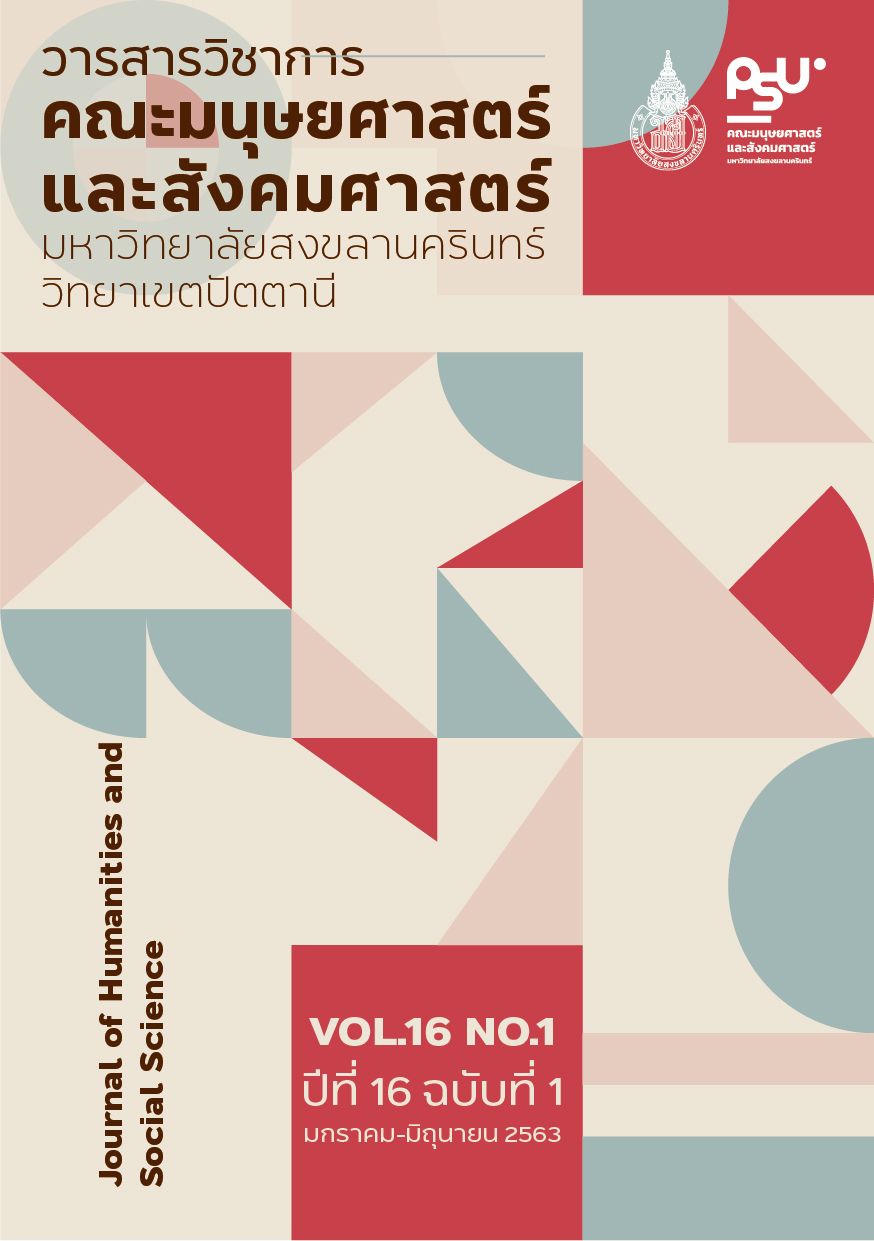The Power of Classics of the East in the Globalized Contexts: The Romance of the Three Kingdoms or Sanguo Yen-I in Thai Literary and Social Contexts
Keywords:
Adaptation, Chinese Chronicles, Romance literatureAbstract
The purpose of this research paper is to survey and analyze the power of one of the famous classics of the East: The Romance of the Three Kingdoms or Sanguo Yen-I in modern Thai society and its impacts on Thai literary circles and society. The Romance of the Three Kingdoms or Samkok (in Thai pronunciation) or Sanguo Yen-I was translated into Thai language in the 18th century. Since then, it has become one of the major literary texts in Thai society, not only as Chinese chronicles or the textbook of military strategies, but also as a prior text for modern Thai literature, cartoons, performing arts, mural painting, animation, website and video games. Sanguo Yen-I is renowned for its content of tricky military strategies. There are Thai proverbs which indicates Sanguo Yen-I’s power that: “one who finished reading Sangou-Yen-I three times is untrustworthy”, or “if you never read Sanguo Yen-I, you cannot start a big project.” Its literary values has inspired Thai writers to write Thai versions of Sanguo Yen-I, for example, Samkok: The Vagabond’s version by Yakhop (Chote Praephan), Samkok: The Capitalist version by former Prime Minister M.L.Kukrit Pramoj, etc. There are also many simplified versions and adapted versions of Samkok in forms of non-fiction, novels and short stories. In this modern era, Samkok has been reproduced and adapted into many forms of art and media from cartoons, video games, games on line, website, performing arts (satiric Chinese opera) and mural paintings. Its impact on Thai readers can be seen from Samkok fanclub and Samkok Theme Park, a tourist spot owned by a Thai millionaire with Chinese blood at Chonburi Province.
References
2.Chantornwong, Sombat. Bot Phichan waa duay Wannakam Kanmuang lae Prawattisat ( Critiques on Political literature and History) Bangkok: Kobfai, 2004.
3.Dilokwanich, Malinee. “Samkok: A Study of a Thai Adaptation of a Chinese Novel” Ph.D. Dissertation, University of Washington, 1988.
4.Manomaiphiboon, Praphin. Samkok: A Comparative Study. Master Degree Thesis, Faculty of Arts, Chulalongkorn University, 1966.
5.Phattanothai, Wanwai. Samkok. A New Translated Version. 31 Volumes. Bangkok: Center for Publishing, 1987.
6.Sangiumpornpanichya, Manit. “Leadership and Management as Reflected in the Romance of the Three Kingdoms”
Master Degree Thesis, Department of Government, Faculty of Political Sciences, Chulalongkorn University, 1979.
7.Tanasillapagul, Sarawut. “Political Philosophy in Romance of the Three Kingdoms: On Justice” Master Degree Thesis, Department of Government, Faculty of Political Sciences, Chulalongkorn University, 1999.
Downloads
Published
How to Cite
Issue
Section
License
บทความนี้ได้รับการตีพิมพ์เป็นของวารสารวิชาการคณะมนุษยศาสตร์และสังคมศาสตร์ คณะมนุษยศาสตร์และสังคมศาสตร์ มหาวิทยาลัยสงขลานครินทร์ วิทยาเขตปัตตานี






